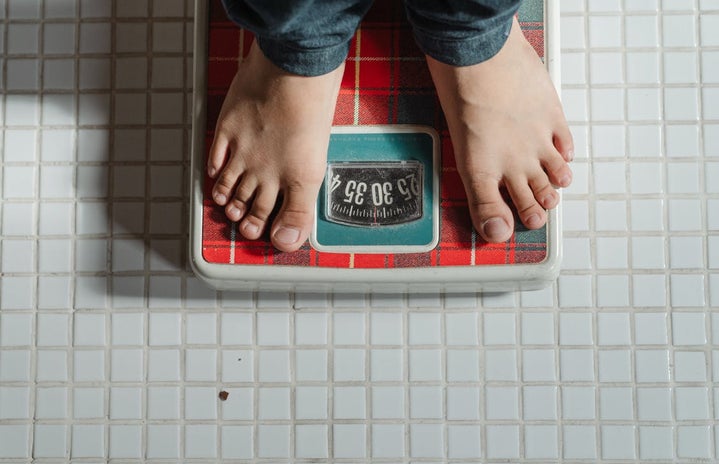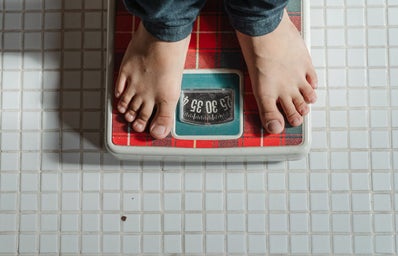Like a lot of Gen-Zers right now, I’ve been anxiously waiting to devour the latest episode of HBO’s hit TV series Euphoria every Sunday. I want to call attention to a moment in an earlier episode of the series that I feel deserves more attention among audiences.
There is a scene where Kat, played by Barbie Ferreira, deals with insecurities, largely surrounding her image and the ability to love and embrace herself for who she is. The scene is intense as Kat admits to harboring hatred towards herself and not being able to simply “be confident” as many body-positive influencers preach to people who struggle with insecurities, body dysmorphia, eating disorders, etc.
In the scene, these body-positive influencers become so real and corporeal in Kat’s mind that they are fictitiously projected into the room, yelling at her to be brave and love herself. In response, Kat breaks down as she begins to feel suffocated, silenced, and at a loss for shutting down. She feels unable to measure up to the confident and positive version of herself that society expects her to be. Before the scene unfolds, the voice of Rue, a character played by Zendaya, says, “At some point recently, the whole world joined a self-help cult and won’t shut the f*ck up about it.” And honestly, I couldn’t have resonated more with the irritated tone of Rue’s voice when she said that.
Look, I am all for loving and accepting who you are, for being proud of your body, embracing the skin you live in and your true self. I believe that body positivity has helped open up a conversation about the toxicity within the beauty and fashion industries when it comes to society’s destructive and dangerous messages on what idealistic bodies and features should be. However, I think this scene in Euphoria is important because it brings to light how an excessive amount of positivity can cause more harm than good— making people feel silenced or invalidated by their feelings.
Everyone has their own journey to self-love, self-acceptance, confidence and happiness and it shouldn’t be rushed or forced in order to appease others.
As a society, we tend to mask our discomfort with negative feelings with positive affirmations. We push for people to openly expose the good in their lives or the good feelings they have. Frustration, anger, bad self-esteem, and sadness have all been casually thrown into the wastebasket of cancel culture. But if you ask me, I think these emotions were canceled long before cancel culture was even a thing.
I suppose what I’m getting at is that it doesn’t make sense. How can body positivity be positive if it condemns those who are truly in need of its positivity? How can body positivity be positive if it’s only accepting of those who already possess self-love? Obviously, not all body positivity is aggressive in its approach but I personally have seen people argue with those who confess to feeling inadequate.
The responses are always the same, “don’t feel that way,” “you’re crazy,” or the worst one, “be yourself.”
This is impossible when that person, like most people in the world, isn’t likely to have any idea who they are.
Gaslighting people about their self-esteem issues and pushing what you want them to feel towards them doesn’t help them in any way. There’s a huge difference between actually wanting people to embrace themselves and working on unlearning societal prejudices. Sometimes this involves just wanting everyone to pretend to be happy so that nobody experiences buzzkill.
It’s not exactly natural for everyone’s mantra to be “only good vibes.” If a person is uncomfortable with listening to and supporting their friend at a low point, they should cease pretending to be their friend if they’re not actually cut out for the job.
Actually loving your own body, for many people, is harder than just deciding at any given moment to be confident.
These negative feelings towards oneself can’t just be automatically shut off by reciting phrases in front of a mirror or wearing different clothes. Positivity can turn into negativity if it is used in a damaging way, be it through aggression, excessiveness, or insensitivity.
We all need to be more careful on how we go about trying to “help” people, especially if we do not understand what they are dealing with.


